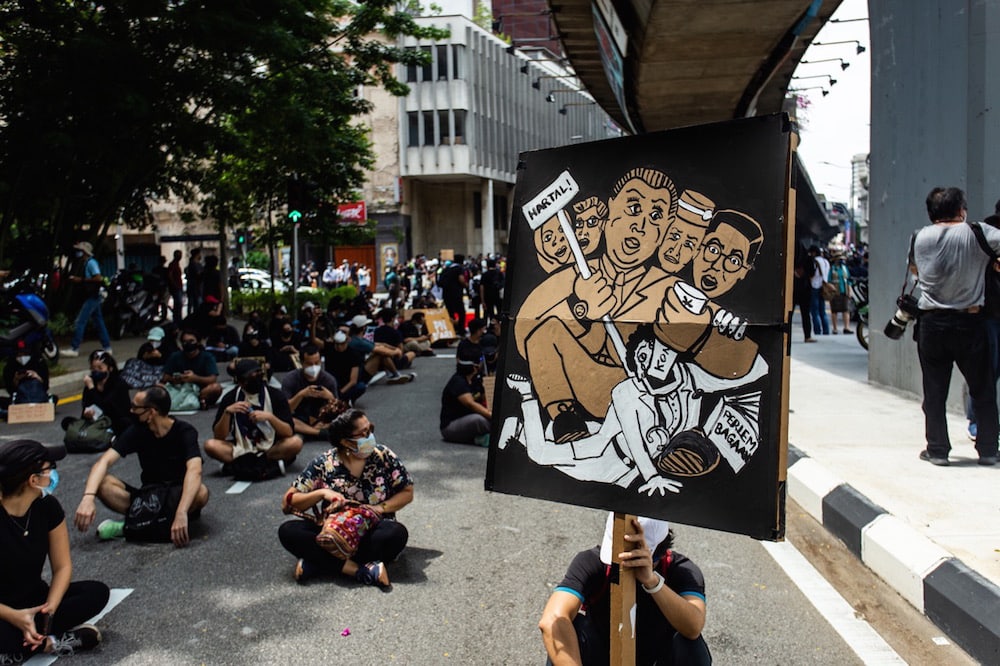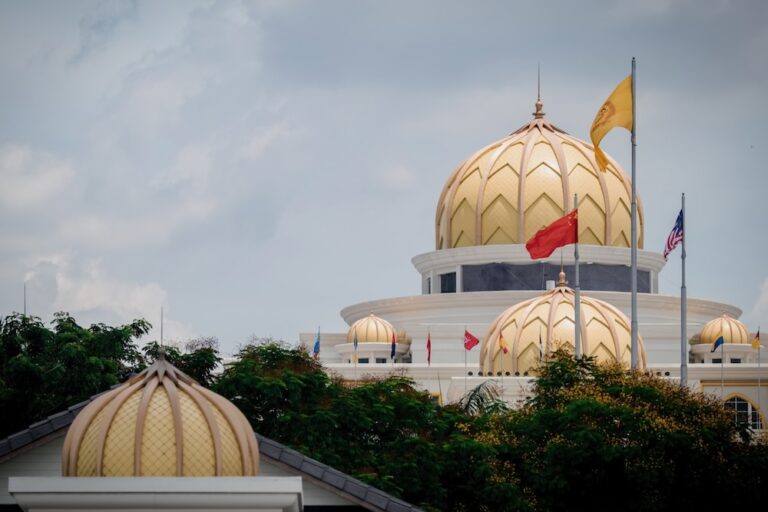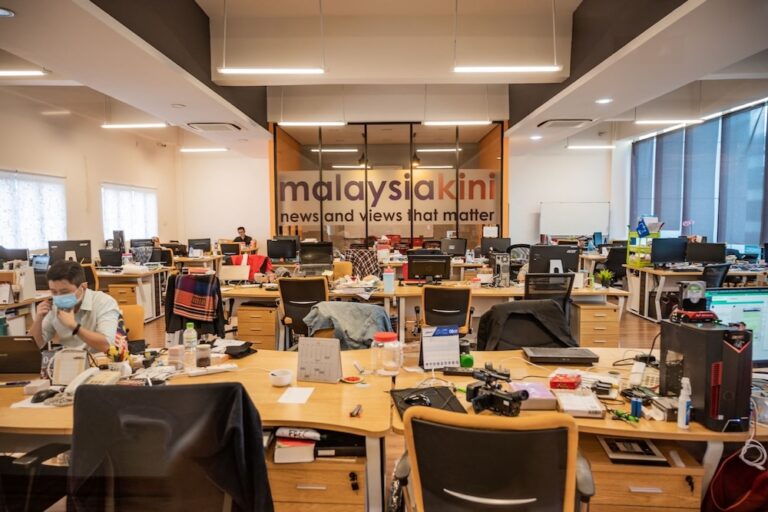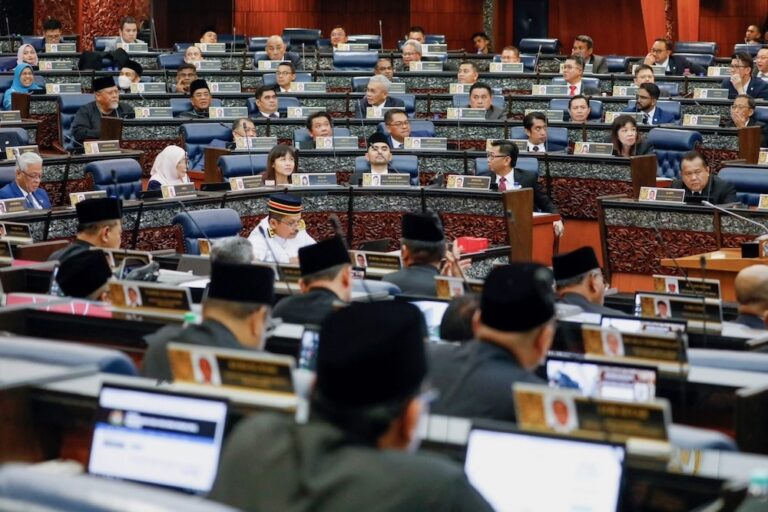Several civil society groups are urging Malaysian authorities to stop persecuting activists and other citizens who are protesting against the government's pandemic response.
This statement was originally published on cijmalaysia.net on 31 July 2021.
Civil society organisations working on freedom of expression stand in solidarity with and applaud the organisers of the #Lawan rally for a peaceful and organised protest on 31 July 2021. We condemn the investigation and arrest of protest organisers prior to the event, the authorities’ obstruction of the protest by setting roadblocks and barricades, and the police threats to take action against participants.
Freedom of assembly and expression are fundamental rights, and essential in ensuring government efficacy and accountability. These rights must be protected and upheld, and the pandemic cannot be used as a pretext to prevent people from exercising these important rights.
In recent weeks, Malaysia has experienced a soaring COVID-19 case load, overwhelmed hospitals and many deaths, while livelihoods have been threatened and lost. The government declared an emergency, imposed draconian laws and suspended Parliament. In a functioning democracy, and even during a pandemic, the people must be allowed to demand accountability from the government, including through peaceful protests adopting appropriate public health measures.
Representatives from our organisations, which work to promote freedom of expression in Malaysia, were on the ground during the 31 July 2021 #Lawan protest, scheduled to be held at Dataran Merdeka, to monitor the protest and document any rights violations. The protesters demanded the resignation of Prime Minister Muhyiddin Yassin, a full Parliament sitting, and a moratorium on the repayment of all loans. Protesters highlighted the high death toll from COVID-19 during the protest. The protest ended peacefully around 12:35pm after organisers and the police instructed the crowd to disperse.
Our observers noted that all routes to Dataran Merdeka were cordoned off with barricades and protesters were not allowed to access the square. Protesters therefore improvised, conducting a march on the road near Dataran Merdeka and holding a sit-in protest.
Barring access to a public square constitutes a breach of the right to peaceful assembly. Protest organisers took proactive steps and issued detailed guidelines on COVID-19 SOPs, including requiring protesters to double mask, social distance, not share placards and sanitise their hands. To uphold the fundamental right of peaceful assembly while appreciating the gravity of the current pandemic, the police should have worked with the organisers to facilitate the protest. By barricading access to Dataran Merdeka, the police in fact made it more difficult to comply with COVID-19 SOPs by forcing protesters onto the road.
Our observers also noted excessive police presence in vehicles and on foot, including several armed police officers, the presence of a Black Maria vehicle and a low-flying helicopter. Police officers in uniform and in plain clothes were also taking photographs and videos of protesters. These constitute intimidatory tactics that inhibit protesters’ right to peacefully assemble and, again, serve to obstruct rather than facilitate their peaceful protest. Surveillance of protesters impacts their freedom of expression and may also deter others from exercising this right.
The most egregious actions by the police were the arrests and investigations of protest organisers prior to the event, including the arrest and detention of 20-year-old activist Sarah Irdina who was arrested under the draconian Sedition Act. The organisers of this protest consisted of many young people, and we commend their passion and dedication for our country, as well as their capability in organising this peaceful protest, despite the continuous threat of investigation, arrest and detention.
Open dialogue, transparency, and accountability from public authorities are especially important during public health crises. Scrutiny and critique of government approaches to managing the COVID-19 pandemic—whether by journalists, human rights defenders, or others—promote accountability and foster better responses.
Recommendations
We are deeply concerned with the Perikatan Nasional government’s abuse of draconian legislation, policies and practices and its unrelenting targeting of all forms of dissent. We have also observed the administration’s insidious reliance on COVID-19 and emergency policies when it comes to clamping down on dissent as well as its irregular enforcement of these policies. The government’s COVID-19 policies are not applied in a just, equal manner, but instead, have been weaponized against those who criticize the government of the day and its institutions. The combination of oppressive legislation and COVID-19 is lethal for democracy, freedom of expression and the development of civic space.
As civil society organisations working on freedom of expression, we make the following calls of the Royal Malaysia Police, under the leadership of the Inspector General of Police, and other relevant authorities:
1. Do not initiate any criminal investigations, arrests or harassment against organisers and protesters that attended the protest today.
2. Drop all investigations and charges against the organisers and others with immediate effect. Instead, the police should take proactive initiatives to support and facilitate the right to freedom of assembly and offer protection. We would also like to remind the IGP that the police force is supposed to remain independent in carrying out its service to the people. The police force’s actions, responses and activities must be guided by international human rights standards to avoid detrimental effect to the people’s fundamental rights and liberties
3. Cease all heavy-handed tactics and stop targeting peaceful protesters and government critics. These actions will have long-term detrimental impacts on democratic progress and civic space. Malaysian authorities should instead take concrete steps to respect, protect, and fulfill Malaysia’s international obligations by providing rallygoers space to assemble peacefully and to facilitate gatherings that are safe, while observing social-distancing rules, as endorsed by the WHO.
Background
Secretariat Solidariti Rakyat (SSR) announced on 21 July 2021 that it would be organising a protest at the Dataran Merdeka on 31 July to protest against the Perikatan Nasional’s administration and the way they are handling the COVID-19 response. The intimidation against the #Lawan organisers started even before their announcement.
● 17 July – SSR held a protest at Dataran Merdeka. On the same day, Mohammad Alshatri Abdullah, Mohd Asraf Sharafi Mohd Azhar, and Muhammad Nur Taufiq Azhar were investigated under Section 9(5) of the Peaceful Assembly Act and fined RM2,000 each under Regulation 10 of Prevention and Control of Infectious Diseases (Measures Within Infected Local Areas) (National Recovery Plan) Regulations 2021.
● 21 July – SSR announced that the #Lawan rally will take place on 31st July.
● 24 July – Vehicle convoys drove through several cities in Malaysia to protest the government’s handling of the COVID-19 pandemic. Participants hung black flags outside their vehicles to call for the re-opening of Parliament, for an end to the state of emergency, and for the Prime Minister to resign. The following day, police called 14 individuals for questioning at police headquarters in Brickfields, Sepang, and Melaka Tengah districts under Section 21A of the Prevention and Control of Infectious Diseases Act 1988. Those investigated include SUARAM Coordinator Mohammad Alshatri, Undi18 co-founder Tharma Pillai, and activist Nashita Md Noor. Police called 14 more individuals for questioning on 26 July and a further six individuals on 27 July. These cases are also being pursued under the Prevention and Control of Infectious Diseases Act, and some individuals are additionally being investigated under Section 233 of the Communications and Multimedia Act for allegedly encouraging participants to join the protests.
● 28 July – Muhammad Nur Taufiq was arrested and taken to the Dang Wangi police district headquarters under Section 4(1) of the Sedition Act and Section 233 of the Communications and Multimedia Act in relation to a tweet that invited the public to join protests.
● 29 July – Sarah Irdina from the youth collective Misi Solidariti was arrested at her home where her family have also endured harassment by authorities. She was then detained overnight for 10 hours for investigation under Section 4(1) of the Sedition Act 1948 and Section 233 of the Communications and Multimedia Act for a social media post that calls for the public to participate in the #Lawan rally.
● 29 July – Tharma Pillai, Afiq Adib and Muhammad Alshatri were questioned under Section 505(b) of the Penal Code and Section 233(1) of the Communications and Multimedia Act.
Despite the intimidation and harassment from the police, SSR decided to continue with the protest and took many steps to make sure that the rally followed COVID-19 SOPs. SSR also requested the Bar Council Human Rights Committee (BCHRC), Human Rights Commission of Malaysia (SUHAKAM) and FoE NGOs to send teams to conduct human rights monitoring during the assembly. The organisers also requested legal aid lawyers to provide legal representation in the event of arrests of participants.



